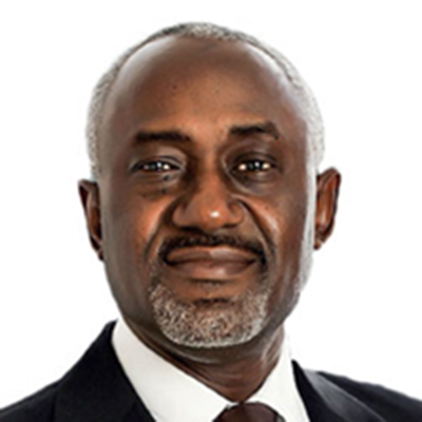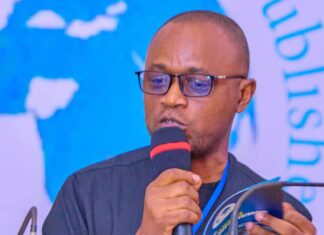The recent commissioning of CFAO/Yamaha ultra-modern tricycle assembly plant in Lagos speaks much about the zeal of the innovative chairman of Yamaha Motor Nigeria Limited, Gbenga Oyebode, who by this act confirms that government’s industrialisation policy on the auto sector is yielding fruits. SAM NWOKORO writes.
There is ample reason for investors in motor-cycles and tricycles production to rejoice. Also, there is ample reason to commend and encourage them in every way possible. Reason: the state of the foreign exchange (forex) market in the country, which has literally brought the naira on its knees, has made the purchase of cars, even fairly-used ones, a big deal.
So, for the time being, a good number of Nigerians would be going for motorcycles, especially in the cities. And when it is realised that bulk of the new motorbikes that would soon dominate the streets are built here, then the beautiful foresight of those who thought about resuscitating the famous Yamaha plant, once popular in Lagos until a few years ago, comes into sharp focus.
Those who thought about reviving Yamaha motor-cycle and tricycle plant should be commended because they have come to fill a most needed void at a time majority of Nigerians look forward to two- and three-wheeler mobility to solve their transportation needs.
As most witnesses of the plant’s commissioning in Lagos recently testify, both federal and state governments should extend all necessary assistance to make the business environment conducive for CFAO to be able to fill this void in city transportation needs at a time the problem looks all set to become an “emergency situation”. A magazine reporter said after Governor Akinwunmi Ambode finished cutting the tape to inaugurate the CFAO/Yamaha plant located at the Amuwo Odofin Industrial Estate along Apapa-Oshodi expressway, “the governor’s eulogies should not just stop there. He understands the transportation emergency in this Lagos. So it is right that very good tax holiday is given them until they expand and spread their distribution network. Too much tax and regulation should not stifle them.”
According to the governor during the inauguration, the plant is set to employ thousands of youths, especially the many graduates from the numerous vocational and apprenticeship schools which have been churning out craftsmen of various categories. TheNiche learnt that recruitment of technicians is already on.
Meritorious comeback
The coming of Yamaha assembly plant was made possible by the partnership between CFAO France and Yamaha Motor Nigeria Limited. The plant will be producing 70,000 motor cycles by 2018, according to Managing Director, CFAO Yamaha Limited, Olivier Levigne.
“Nigeria should expect quality products from the company which Yamaha is known for across the world,” he said.
Governor Ambode described the plant as a good development for the people of Lagos and Nigeria in general. He added: “It will bring to 10 the number of such plants commissioned in the state since the federal government’s automobile policy came into effect in 2015.”
Lagos, with a population of over 21 million people that comprises middle class with strong purchasing power, remains the best place for business in Nigeria, he added.
Elated CFAO chairman, Richard Bielle, and President, Yamaha Motors Company Limited, Hiroyuki Yanagi, said the joint venture was strategic, as it would boost the companies’ capacity to deepen their operations in Africa.
The comeback of Yamaha lends credence to the vision of the federal government that drew up a new automobile industrialisation roadmap in 2014, complemented with a soft bailout for those who want to assist the government save forex. The roadmap envisages Nigeria attaining 100 per cent local manufacturing of automobiles and accessories by 2030. To give teeth to the plan, government gave restrictions about the age limit for imported vehicles and recommend tariff hike.
Agitations by vested interests for government to cancel the policy or water it down had little effect on it, because of the potential of the plan to make Nigeria a vehicle manufacturing country. Since then, the local industrialisation of the automobile sector has been growing gradually.
In August 2014, after the drawing of the automotive industrialisation roadmap, the Director-General of the National Automotive Council, Aminu Jalal, rationalised the policy, saying then that data from Nigerian Automotive Manufacturers Association (NAMA), National Bureau of Statistics (NBS), and the United Nations Conference on Trade and Development (UNCTAD) showed that a total of 400,000 vehicles (300,000 used and 100,000 new) valued at N558 billion then were imported in 2012 alone.
He added: “The Nigerian automotive industry has the potential to create 70,000 skilled and semi-skilled jobs along with 210,000 indirect jobs in SMEs (Medium Scale Enterprises) that will supply the assembly plants.” He also said that 490,000 other jobs would also be created in the raw materials supply industries, as 2,584 persons were indirectly employed by the existing assembly plants.
The return of Yamaha assembly plant is interpreted by one automobile expert, Peter Ige, as salutary. “It is very pleasant. I know their prices will be moderate because it is an already known firm. It has been here before. But they closed sometime around 2010. It used to be the choice of everybody because of the (sound of the) engine and fuel efficiency. Yamaha is friendlier to handle.”
A car dealer described the development as “very interesting”, adding that the firm should have gone full blast into car assembly.
His words: “Yamaha has no car assembly here. I used to love Yamaha machines when they were around before they closed. It is good they have come back, and I think now is the right time because people are finding it difficult to source for foreign exchange to import vehicles even keke (tricycle) and motorcycles.”
Deputy Managing Director-cum-Marketing Director, Fuji Hisashi, revealed: “In addition to the plant and showroom, Yamaha Motor will launch two initiatives, The Yamaha Technical Academy, which will provide technical training and support services, and The Yamaha Riding Academy, which will contribute to motorcycle riding safety in the country.”
He explained that the joint venture was founded on the manufacturing and marketing expertise of Yamaha Motors and CFAO business experience and vast distribution network in Nigeria spanning over 133 years.
Visionary chairman
In the business world, the stuff of which corporate success is made is the ability of the boss to see opportunity where others see challenges. But challenges are always there for mortal man to tackle.
For not resorting to hysterics over the exchange rate, business environment, energy problems and all sorts to think about revamping the Yamaha plant says much about Oyebode’s patriotism and foresight in advancing a national development aspiration.
Born on March 30, 1959, Oluwagbemiga “Gbenga” Oyebode, a Member of the Order of the Federal Republic (MFR), is one of the founding partners and Chairman, Management Board of Aluko & Oyebode. He has been described by International Financial Law Review (IFLR) 1000 (guide to the world’s leading financial law firms) as “one of Nigeria’s most prominent lawyers” and by Chambers Global as a “consummate deal maker who has received accolades from clients and peer alike for his corporate expertise”.
He had his secondary education at Christ’s School, Ado Ekiti, and proceeded to study law at the University of Ife (now Obafemi Awolowo University) where he graduated with a Bachelor of Laws (LL.B) degree in 1979, and he was admitted as a barrister and solicitor of the Supreme Court of the Federal Republic of Nigeria in 1980. He went on to obtain Master of Laws (LL.M) degree at the University of Pennsylvania in 1982. He was previously employed by White and Case in New York as an associate between 1982 and 1983 after which he worked at Gulf Oil (now Chevron) in Houston, United States..
Oyebode is currently the Chairman of CFAO Yamaha Motor Nigeria Ltd. and Okomu Oil Palm Plc. He also serves on the Board of MTN Nigeria Communications Limited and Nestle Nigeria PLC. He is on the Africa Advisory Committee of the Johannesburg Stock Exchange. He is also a Fellow of the Chartered Institute of Arbitrators and a member of the Nigerian Bar Association, the American Bar Association and the International Bar Association. He was from 2012 to 2014, Chairman of NBA’s Section on Business Law (NBA-SBL). On July 30, 2015, he retired as a Director and Chairman of Access Bank Plc after 13 years of taking leadership roles at the Bank.
He also holds the Belgian Royal Honour of ‘Knight of the Order of Leopold’. On June 27, 2015, he was distinguished with an award for Lifetime Contribution to Law by Law Digest Africa Awards.
Forbes described him as one of Nigeria’s most renowned commercial lawyers and stated that the value of his shareholdings is worth tens of millions of dollars.
He has presented many papers on diverse issues of national and corporate development including: ‘Law firm partnerships in Nigeria – Pitfalls to Avoid’, ‘Legal Practice as a Business – The Legal Practitioner’s Perspective’, ‘The Budding Lawyer in a Global World: Challenges and Opportunities’, ‘Partnerships in Nigeria – Prospects& Challenges: A Law Firm’s Perspective’ and ‘GSM: Opportunities, Challenges and Impact on the Nigerian Economy – Pertinent Considerations in the Legal Framework of an Efficient GSM Industry in Nigeria’.
Others are ‘Legal Issues in Oil & Gas Project Finance’, ‘Petroleum Exploration and Development in West and Southern Africa (Legal Perspectives: Anglophone Countries)’, ‘Ownership and Control Issues regarding Oil & Gas and Hard Minerals in Areas of Disputed Borders: A West African Perspective’, ‘Project Financing in the Nigerian Petroleum Industry – The Oso Condensate Project’, ‘The Governmental Regulatory Approval Processes in Nigeria of Acquisition and Disposal of Oil Producing Properties’ and ‘Governmental Regulatory Approval Processes in Nigeria on Acquisition and Disposal of Oil Producing Properties’.
He is married to Aisha Mohammed-Oyebode.













